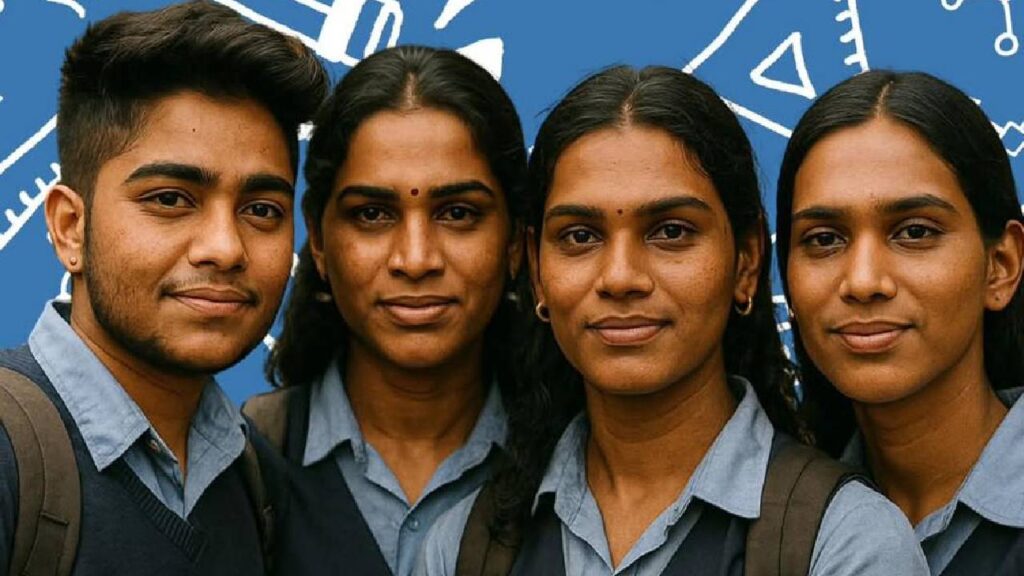How trans community is paying price of financial apathy
PNS|HYDERABAD
At the intersection of activism and compassion stands Abhina Aher, founder of the TWEET Foundation—a trans-led powerhouse transforming lives in Delhi and Mumbai. With a mission rooted in dignity and equity, Abhina leads efforts that span crisis response, shelter, healthcare, legal aid and employment for the transgender community. Beyond grassroots support, she’s shaping the national narrative, partnering with government, civil society and industry to champion trans rights and policy reform across India.
Could you explain the reason behind today’s pressing discussion on finance and the trans community, Abheena?
A quiet crisis is taking place. In India, a large number of trans-led and trans-affirmative programs are closing or reducing in scope—not because they are ineffectual, but rather because financing has dried up! The abrupt removal or rerouting of resources, whether from development aid, philanthropic contributions, or corporate social responsibility programs, is destroying years of grassroots work. Hundreds of transgender people’s livelihoods are immediately and cruelly at risk when the aid ends.
Which immediate repercussions have you witnessed on the ground?
It has a terrible effect. Once at the forefront of HIV awareness and health promotion, peer educators and community health workers are losing their positions. Project managers and transgender professionals who made a living in development are starting over. Programs for skilling have been suspended in the middle. The most agonising thing is that safe communal places that provided dignity in addition to refuge are closing. This is a survival issue, not merely an economic one.
What do you think is causing the withdrawal of corporate funding and CSR?
Due to the COVID-19 pandemic and changing economic priorities, a significant portion of CSR resources have been reallocated to larger, more noticeable infrastructure or educational initiatives. Sadly, transgender rights and livelihoods are frequently left off of the priority list. The loss of support from important foreign donors like USAID, which had previously provided funding for HIV prevention, healthcare and empowerment initiatives for the trans community, has been another devastating blow. Programs that were lifelines for thousands of transgender people are either fighting for survival or have completely shut down as a result of USAID’s withdrawal, leaving a huge void. This is about the breakdown of a support structure that was established over many years, not simply about money. The implications are profoundly structural and real, albeit sometimes it’s because of a lack of knowledge and other times because of discomfort with gay topics.

Which industries or services are most impacted?
HIV prevention and care, in particular, have been severely impacted by grassroots health services. Programs for trans adolescents that emphasise entrepreneurship, job preparedness and skill development are disappearing. Additionally, drop-in centers that offered food, psychiatric help, or even just a safe haven have vanished. These are essentials, not extravagances.
How do those who were employed under these schemes fare?
They are forced, not voluntarily, to return to dangerous informal economies, such as begging or sex work, as a result of their income loss. Here, we are discussing lives, identities and futures that were at last given some light but now feel abandoned; we are not discussing numbers. It’s devastating.
What part might CSR and domestic money play in turning things around?
CSR leaders and domestic funders must take the initiative. Resources must be redirected toward social security, health care and trans livelihoods. Businesses need to understand that trans inclusion is an essential component of inclusive development and not a side issue. Impact can be increased through long-term public-private collaborations, particularly when transgender individuals are in charge of the programs.
What is your current call to action for businesses and policymakers?
Put money into us. As a dedication to justice and equity, not as charity. CSR financing for trans-led initiatives should be revived. Create public-private collaborations that prioritise transgender individuals rather than marginalising them. To bridge the gap left by foreign contributors, promote domestic philanthropy. India cannot afford to ignore its transgender residents if it hopes to be genuinely inclusive and prepared for the future.




